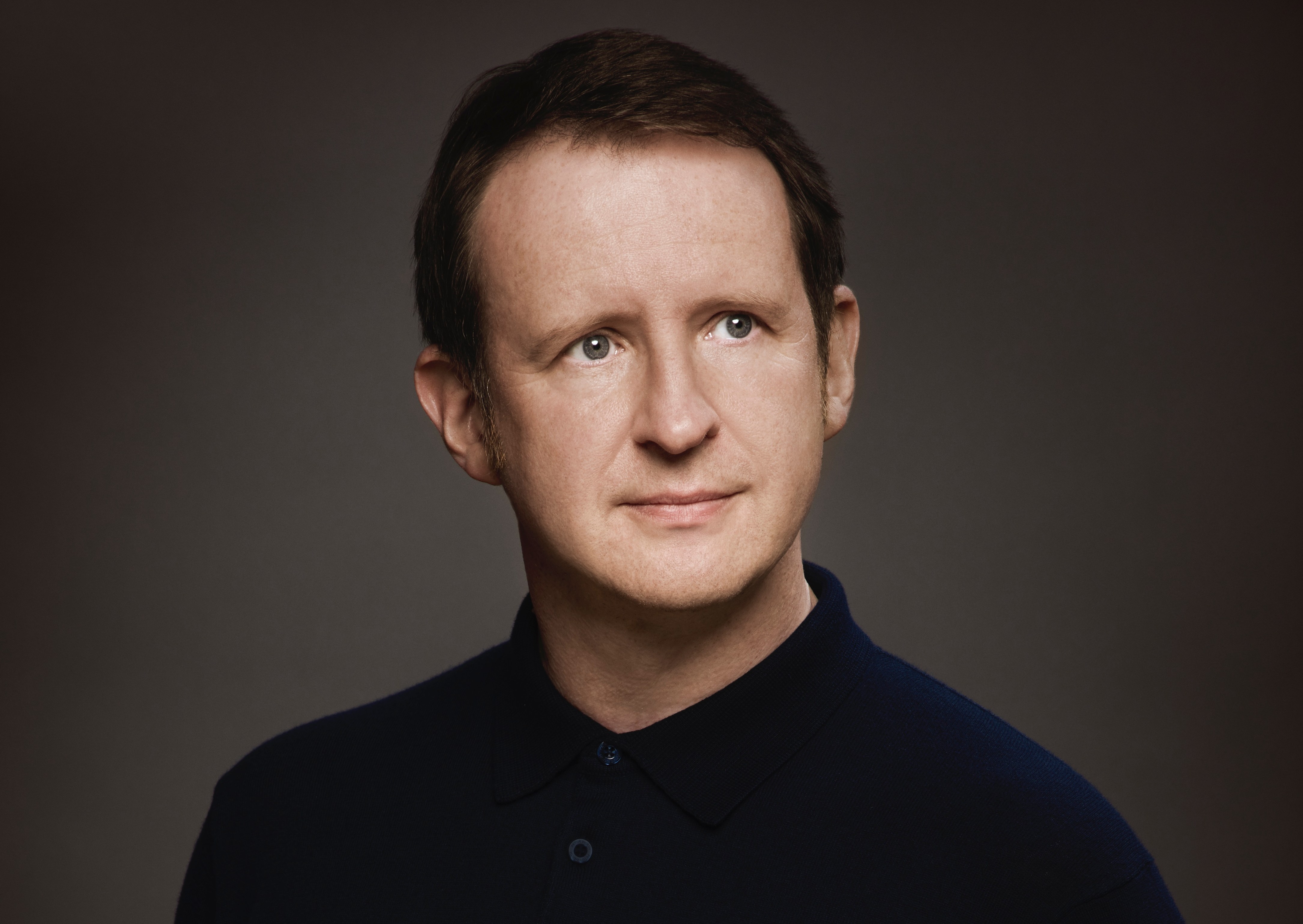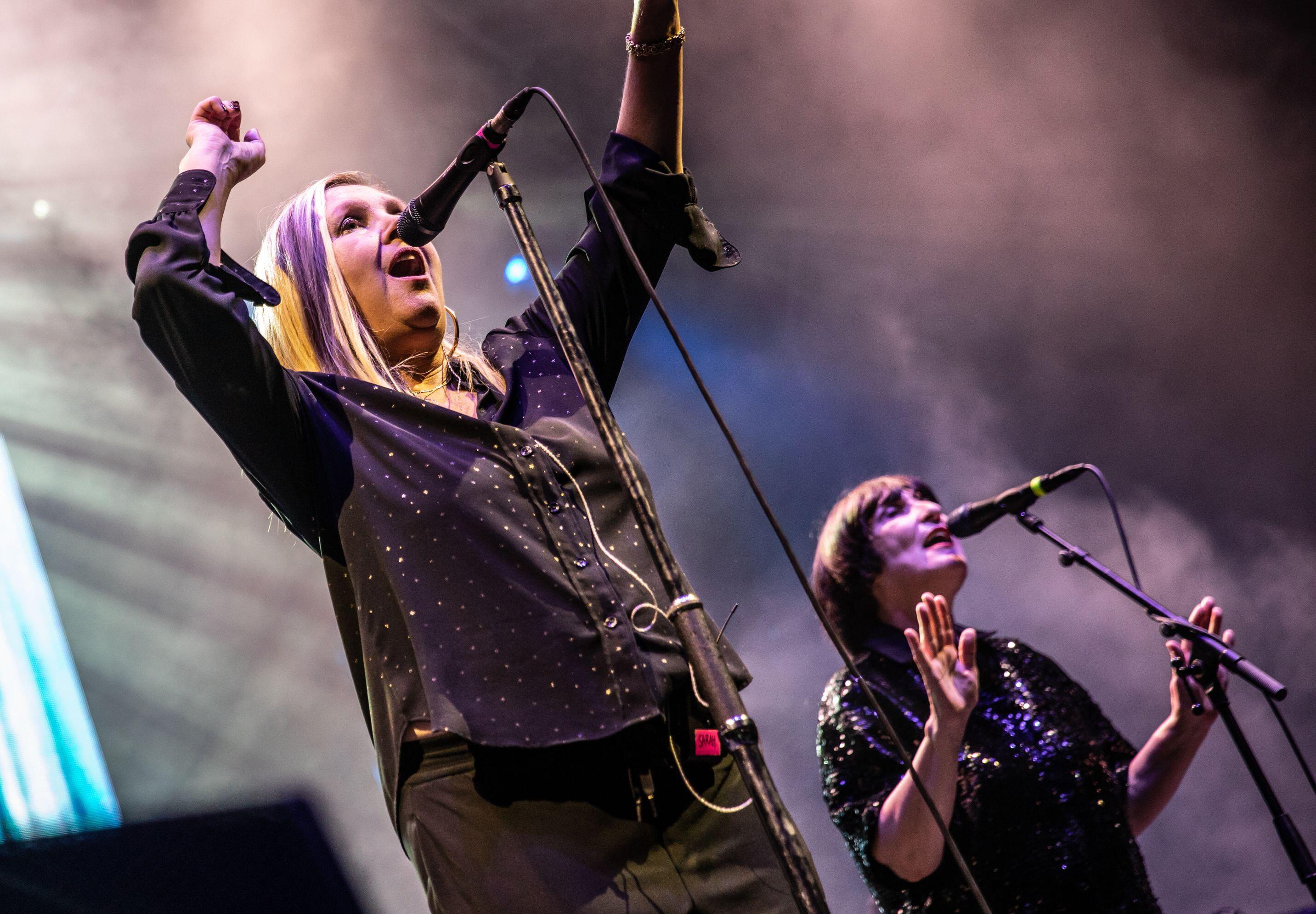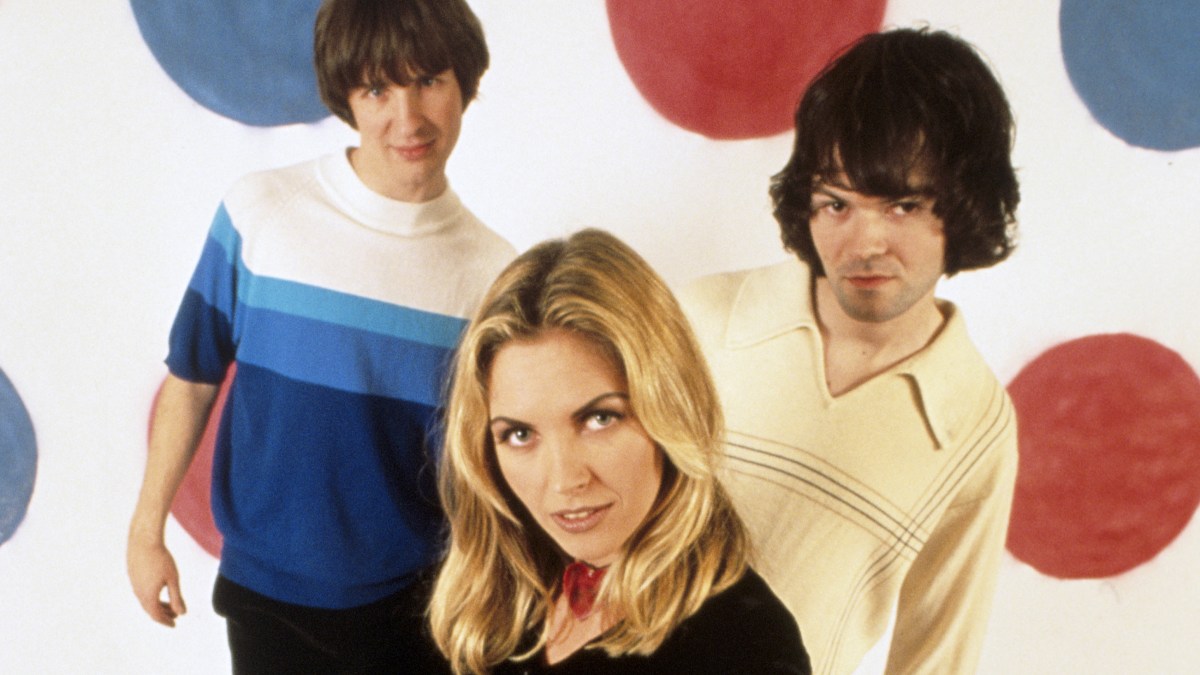It’s been 35 years since my oldest friend Pete Wiggs and I recorded Saint Etienne’s Only Love Can Break Your Heart, and a mere 34 since Sarah Cracknell joined us for our debut album, Foxbase Alpha.
Now we’ve decided that our new album, International, will be our last. The album is — as is our wont — an ebullient pop celebration with contributions from Vince Clarke and Nick Heyward, two of our teenage heroes, as well as some of our favourite contemporaries — Orbital’s Paul Hartnoll, the Chemical Brothers’ Tom Rowlands, and the producers Erol Alkan and Tim “Xenomania’’ Powell.
We haven’t half had fun. Over three and a half decades we have worked in the studio with Kylie Minogue, been flattered by Winona Ryder and been awarded a Mercury music prize runners-up medal by George Martin.
At the other end of the scale, we’ve played a charity show to an empty tent at Chessington World of Adventures while Judith Chalmers looked on crossly. A more commercially minded band might have engaged in lengthy world tours, and may also not have called their fan newsletter Clenbuterol, but we always wanted to prioritise our friendship and our sanity.
I’m not quite sure how we’ve navigated the seismic changes in the music industry since 1990, but it feels like a good idea to withdraw before things get any more digitised and atomised.
In early 1991 we recorded a song called 7 Ways to Love and, thinking it sounded like a hit single, but — dare I say it — a bit of a novelty, we pressed up some one-sided white label 12in singles using the pseudonym Cola Boy.
We sold them from the back of Pete’s car to dance music record shops in the West End which, to our delight, hoovered them up. When it started to appear on the playlists of DJs such as Andrew Weatherall, major record labels got in touch.

It became a Top Ten hit for Arista, although Sarah’s original vocal had to be replaced by that of her mate Janey Lee Grace for contractual reasons. Gaming the industry seemed to be a piece of cake. I wouldn’t have a clue how to go about creating a Top Ten hit, using such basic DIY knowledge, in 2025.
After three years of minor hit singles, we reached the dizzy heights of No 12 with You’re in a Bad Way in early 1993, and the call came asking us to make our first appearance on Top of the Pops. For me, this was a childhood dream on a par with playing in the FA Cup Final at Wembley. The BBC studios in Borehamwood smelt like British Rail carriages from the 1950s, and in a past life had clearly been a barracks or an isolation hospital for some vicious Victorian malaise.
By the time we entered the front door, it was teeming with such acts as the Dutch techno band 2 Unlimited, the neo-soul duo Charles and Eddie, and Walthamstow’s roguish pin-ups East 17. Brian Harvey of the latter was playing pool with the EastEnders actress Nicola Stapleton, and was later seen pushing her round at high speed in a shopping trolley.
• The 25 best albums of the 21st century (so far) — ranked
The BBC will never show our episode again, though, because it also featured Rolf Harris singing Stairway to Heaven. It was only after Harris was convicted that Sarah told me and Pete he had squeezed her bum painfully hard when no one was looking. She had never mentioned it before because she thought no one would have wanted their “cuddly Rolf’’ illusions shattered. No one should believe that some things in the music industry haven’t changed for the better.
The early Nineties was a playground for adventurous British pop music. House and techno grew peculiar branches that became rave, jungle, drum’n’bass and trip-hop, while kindred spirits such as Pulp, Suede, Denim and World of Twist looked to the unfashionable 1970s for inspiration as much as to the contemporary scene.
Each group had their own unique take — it was terrific. When this scene mutated into Britpop and became a gold rush it was a lot less fun. Substandard soundalike bands such as the Bluetones absorbed the demand and became chart-toppers; Oasis and Blur getting pally calls from Alastair Campbell felt very un-pop and uncomfortable.

Bob Stanley: “We’re all still here — thank God — and still friends. We can go out on a high”
If we had been signed to a multinational rather than the independent Heavenly Recordings we might have been strong-armed into writing a concept album about the Camden Town boozer the Good Mixer in 1995.
But we had always regarded ourselves as a European group, and so recorded our next two albums in Sweden and Berlin to avoid the excessive Union Jack bunting. This led to the three of us house-sharing for several weeks. We felt — just for a while — like the Beatles in Help! and played Yahtzee and Jenga while drinking continental beer and writing disillusioned lyrics about the state of the nation such as Heart Failed (in the Back of a Taxi).
The new century, and cheaper digital cameras, brought the opportunity to make a film called Finisterre to go with our album of the same name. Over the years we had talked with the director Paul Kelly about how James Mason’s 1967 documentary The London Nobody Knows might look if it were made in the present, and in 2003 we gave it a go.
• The best new songs of 2025 to listen to this week
It led in 2005 to a commission from the Barbican to make a film about the Olympic Park site called What Have You Done Today Mervyn Day? David Essex did the narration, Pete and I wrote the score and acted as assistants to Paul on location, and Sarah added beautiful wordless vocals.
Film has always been part of our identity, especially for Sarah: her late father, Derek Cracknell, worked on Bond films and as an assistant to Stanley Kubrick. When Pete and I were at school, I’d tip him off about records and he’d do the same with movies — he had a subscription to Sight and Sound magazine and often went to the cinema on his own. He was 14!
Time went by. We all moved out of London. We all had kids. The kids grew up with each other, and we felt that we had created an extended family. Sometimes we took long breaks between albums; other times we recorded two a year.

On stage at Butlins, Minehead in 2022
CHARLIE RAVEN/ALAMY
The benefit of always staying on a UK independent label meant we were always in control of how often we played shows, what we recorded, and the artwork (it may not have won any awards, but I thought the cover of our 2012 album Words and Music was quite beautiful). Although our priorities shifted, we tried to stay true to our principles and enjoy ourselves.
Most groups are the worst people at understanding the arc of their careers and knowing when to stop. Some of the biggest bands in the world — the Byrds, the Who, REM — carried on releasing albums for years after it was obvious to everyone else that they should have split. The recent Oasis shows have not been packed with gems from the 2005 album Don’t Believe the Truth.
For better or worse, we’ve always tried to shift our sound. The theory was that, if we lost fans, we would pick up an equal number of new listeners who preferred our new album (the sales figures didn’t always bear this out). In all, we created 13 albums, plus a handful of film soundtracks, a couple of remix albums and a smattering of fan-club-only releases — a pretty substantial catalogue.
• Read more music reviews, interviews and guides on what to listen to next
What’s more, we’re all still here — thank God — and still friends. We can go out on a high with International, and bow out with our dignity intact. In a more civilised country, we’d all soon be reaching retirement age (I’m the only one with a senior railcard so far) and looking forward to spending more time on the allotment or in a canalside pub. If being in a pop group has often felt like we’ve been living in a dream, we can at least pretend that we’ll all be retired with a decent pension at 60.
We’re still busy. Pete is now a film soundtrack writer with a degree to his name. I’m writing a book about my first musical heroes, the Shadows. And rumour has it that Sarah is writing a book of her own. After International, we’ll do one more dance round the maypole, we hope with shows in Europe and the Americas. Then we’ll quit to spend more time with our friends and family — which, essentially, means each other.
International (Heavenly Recordings) is out on Sep 5
